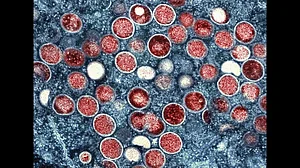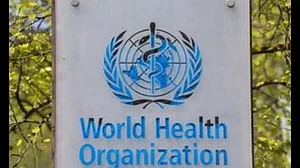
Name: World Health Organization: WHO
The World Health Organization (WHO) is a specialized agency within the United Nations system dedicated to international public health. Established in the aftermath of World War II, the WHO has been at the forefront of global health initiatives for over seven decades. Its headquarters are located in Geneva, Switzerland, with six regional offices and numerous country offices worldwide.
The WHO's organizational structure consists of three main bodies: the World Health Assembly, the Executive Board, and the Secretariat. The World Health Assembly is the supreme decision-making body, composed of representatives from all 194 member states. It meets annually to determine policies, appoint the Director-General, supervise financial policies, and review and approve the proposed program budget. The Executive Board comprises 34 health experts elected for three-year terms, implementing the decisions and policies of the Health Assembly and advising it. The Secretariat, led by the Director-General, includes around 8,500 health experts, technical and administrative staff working at the headquarters, regional offices, and country offices.
Funding for the WHO comes from two primary sources: assessed contributions (membership dues from countries) and voluntary contributions from member states and other partners. In recent years, voluntary contributions have formed the majority of the organization's funding, leading to debates about potential conflicts of interest and the influence of major donors on the WHO's priorities.
The WHO's constitution outlines its objective as "the attainment by all peoples of the highest possible level of health." To achieve this, the organization focuses on six core functions: providing leadership on global health matters, setting norms and standards for health, articulating evidence-based policy options, providing technical support to countries, monitoring health situations and trends, and shaping the health research agenda.
The WHO's activities span a wide range of health issues, including communicable diseases, non-communicable diseases, health systems strengthening, health emergencies, health promotion, and health through the life course. The organization works to prevent and control infectious diseases, address chronic conditions, support robust health systems, coordinate responses to health crises, advocate for healthier lifestyles, and focus on health issues across all stages of life.
Throughout its history, the WHO has played a significant role in several global health milestones. These include the eradication of smallpox in 1980, the near-eradication of polio through the Global Polio Eradication Initiative, the adoption of the Framework Convention on Tobacco Control in 2003, the update of International Health Regulations in 2005, and the introduction of the Essential Medicines List in 1977.
Despite its achievements, the WHO faces several challenges and has been subject to various criticisms. These include concerns about its funding and independence, issues with bureaucracy and efficiency, critiques of its response to health emergencies, accusations of politicization, debates about its scope and priorities, and challenges in balancing the interests of member states with global health priorities.
The COVID-19 pandemic has brought renewed attention to the WHO's role in global health governance. While the organization has been at the forefront of coordinating the international response, it has also faced scrutiny over its early handling of the outbreak and its relationship with China. In response to criticisms and challenges exposed by the pandemic, there have been calls for WHO reform, including proposals to strengthen its ability to independently verify information, enhance its capacity to deploy resources during outbreaks, reform its funding structure, improve coordination with other international bodies, and update the International Health Regulations.
The WHO is also focusing on several key priorities for the coming years, including achieving universal health coverage, addressing health impacts of climate change, reducing health inequities, combating antimicrobial resistance, preparing for and responding to health emergencies, and harnessing new technologies and digital health solutions.
The World Health Organization remains a central player in global health, with a unique mandate and reach. While it has achieved significant successes in improving health outcomes worldwide, it also faces ongoing challenges in fulfilling its mission. As global health threats evolve, so too must the WHO adapt to meet the complex health needs of the 21st century. The organization's future effectiveness will depend on its ability to navigate political pressures, secure sustainable funding, and maintain scientific credibility while addressing diverse health challenges across the globe.
The WHO's role in shaping global health policy, coordinating international health efforts, and providing guidance during health crises is more crucial than ever. As the world continues to face both longstanding and emerging health challenges, the WHO's ability to evolve, innovate, and collaborate with various stakeholders will be key to its continued relevance and impact in promoting and protecting global health.








